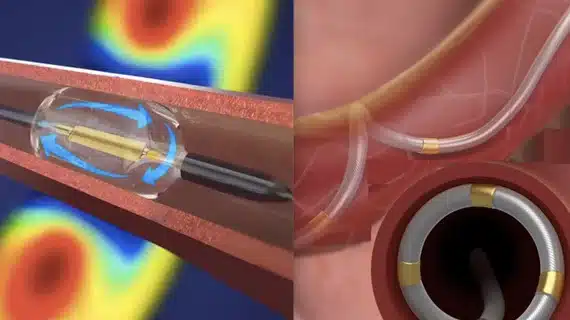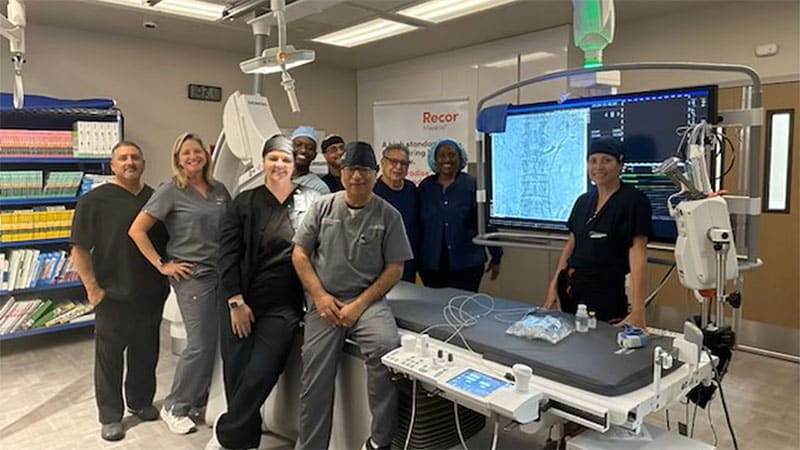What is renal denervation? It’s a minimally invasive procedure that offers new hope for people struggling with high blood pressure, especially when lifestyle changes and medications aren’t enough. Recently approved by the FDA, this innovative treatment helps lower blood pressure by targeting overactive nerves in the kidneys.
For years, hypertension has been a major risk factor for heart disease, stroke, and kidney failure. Yet, despite the availability of medications, up to 80% of people with high blood pressure still don’t have it under control. That’s where renal denervation comes in—providing an additional, effective solution for managing this silent but serious condition.
Let’s dive deeper into how renal denervation works, who can benefit from it, why it’s changing the future of hypertension treatment. and more about what is renal denervation.
Understanding Hypertension and Why It’s a Problem
Before we explore renal denervation, let’s take a moment to understand why hypertension is such a big deal.
High blood pressure occurs when the force of blood against your artery walls is consistently too high. Over time, this extra strain can damage arteries and organs, leading to serious complications like heart attacks, strokes, and kidney disease.
The American Heart Association defines high blood pressure as anything above 130/80 mmHg. Here’s the kicker—many people don’t even know they have it. That’s because hypertension often has no obvious symptoms until it reaches dangerous levels, where it may cause headaches, dizziness, or shortness of breath.
The Traditional Ways to Manage High Blood Pressure
For years, doctors have relied on two primary methods to control blood pressure:
- Lifestyle Changes – Eating a heart-healthy diet, reducing salt intake, exercising regularly, managing stress, and maintaining a healthy weight can all contribute to lower blood pressure.
- Medications – There are several types of blood pressure medications, including beta-blockers, ACE inhibitors, and diuretics, which help regulate blood pressure levels.
While these approaches work for many, they don’t work for everyone. In fact, studies show that up to 80% of people with high blood pressure don’t have their condition fully controlled, even with medication. This is where renal denervation comes in.
What Is Renal Denervation?
Renal denervation (RDN) is a minimally invasive procedure that helps lower blood pressure by reducing nerve activity around the kidneys.
The kidneys play a crucial role in blood pressure regulation. They communicate with the brain through a network of nerves that help control blood pressure levels. In some people, these nerves are overactive, contributing to high blood pressure that doesn’t respond well to medication.
RDN works by disrupting these nerves, reducing their ability to send signals that raise blood pressure. The result? A significant drop in blood pressure levels—without the need for more medications.
How Does Renal Denervation Work?
Renal denervation is performed using a catheter-based approach. Here’s what the procedure typically looks like:
- Preparation – The patient is given a local anesthetic, and a small catheter is inserted into an artery, usually through the groin or wrist.
- Treatment – The catheter is guided to the renal arteries, where it delivers radiofrequency energy, ultrasound, or chemical therapy to ablate (or disable) the overactive nerves.
- Completion – The catheter is removed, and the patient is monitored for a short period before going home the same day or within 24 hours.
The entire procedure usually takes less than an hour, and most patients can return to normal activities within a day or two.
Both the paradigm RECOR System and the Medtronic Simplicity catheter systems allow a minimally invasive approach with proven results.

Efficacy and Clinical Evidence
Clinical trials have demonstrated the potential benefits of renal denervation:
- TARGET BP I Trial: This randomized clinical trial showed that RDN led to significant reductions in blood pressure among individuals with uncontrolled hypertension, even when lifestyle interventions and medications were insufficient.
These findings suggest that RDN can be a valuable addition to hypertension management, particularly for those who have not achieved desired results with conventional treatments.
Who Can Benefit from Renal Denervation?
Renal denervation isn’t for everyone, but it’s particularly beneficial for:
- Patients with treatment-resistant hypertension – Those who take multiple medications but still have high blood pressure.
- People who cannot tolerate blood pressure medications due to side effects.
- Patients newly diagnosed with high blood pressure who want to explore all options early.
- Individuals with long-term hypertension who haven’t responded well to lifestyle changes or medications.
If you’re unsure whether you’re a candidate for RDN, consult your doctor. They may recommend additional testing to see if this procedure is right for you.
Is Renal Denervation Safe?
Like any medical procedure, RDN carries some risks, but they are generally low. Potential risks include:
- Minor bleeding or bruising at the catheter insertion site.
- Temporary pain or discomfort in the treated area.
- In rare cases, damage to the blood vessels or kidneys.
However, studies show that most patients recover quickly with minimal complications. Because RDN is minimally invasive, it doesn’t require a long hospital stay or extensive downtime.

The Future of Renal Denervation
Renal denervation is still evolving, and ongoing research is expected to refine the procedure even further. Future advancements may:
- Improve precision and effectiveness through better catheter technology.
- Help identify the best candidates through genetic and imaging studies.
- Expand treatment applications to other conditions, such as heart failure and chronic kidney disease.
As more studies confirm its long-term safety and effectiveness, RDN could become a standard part of hypertension treatment alongside medication and lifestyle changes.
Conclusion: A New Era in Hypertension Management
For decades, people with high blood pressure had limited options—either change their lifestyle or take medication, often with mixed results. Renal denervation offers a third option, one that’s minimally invasive, backed by science, and capable of delivering significant blood pressure reductions.
If you or someone you know struggles with hypertension despite medications, renal denervation might be worth exploring. Talk to a healthcare provider to see if you’re a candidate for this innovative treatment or if you have more questions on what is renal denervation.
With new advancements like RDN, managing high blood pressure is becoming more effective than ever—helping patients live longer, healthier lives.
